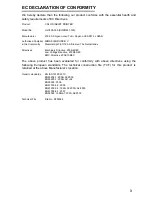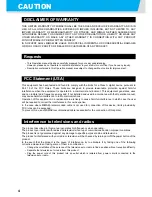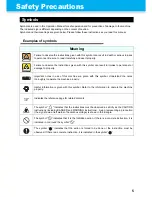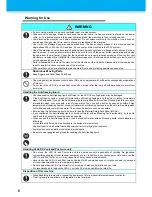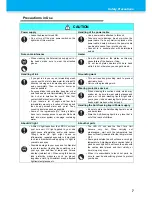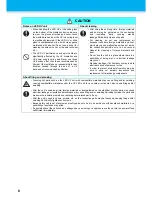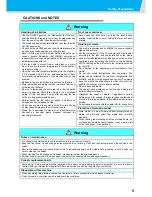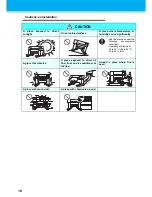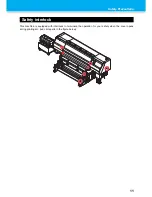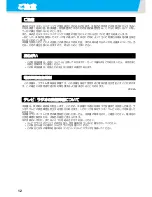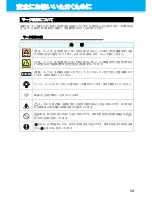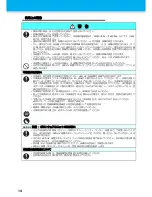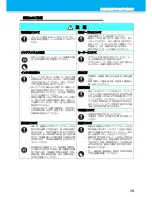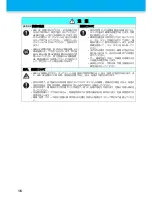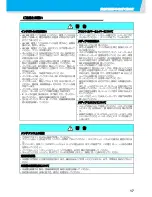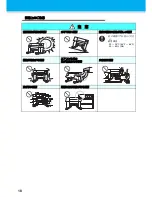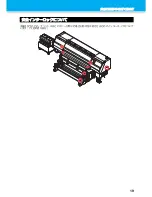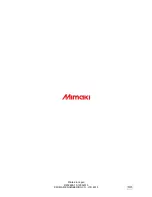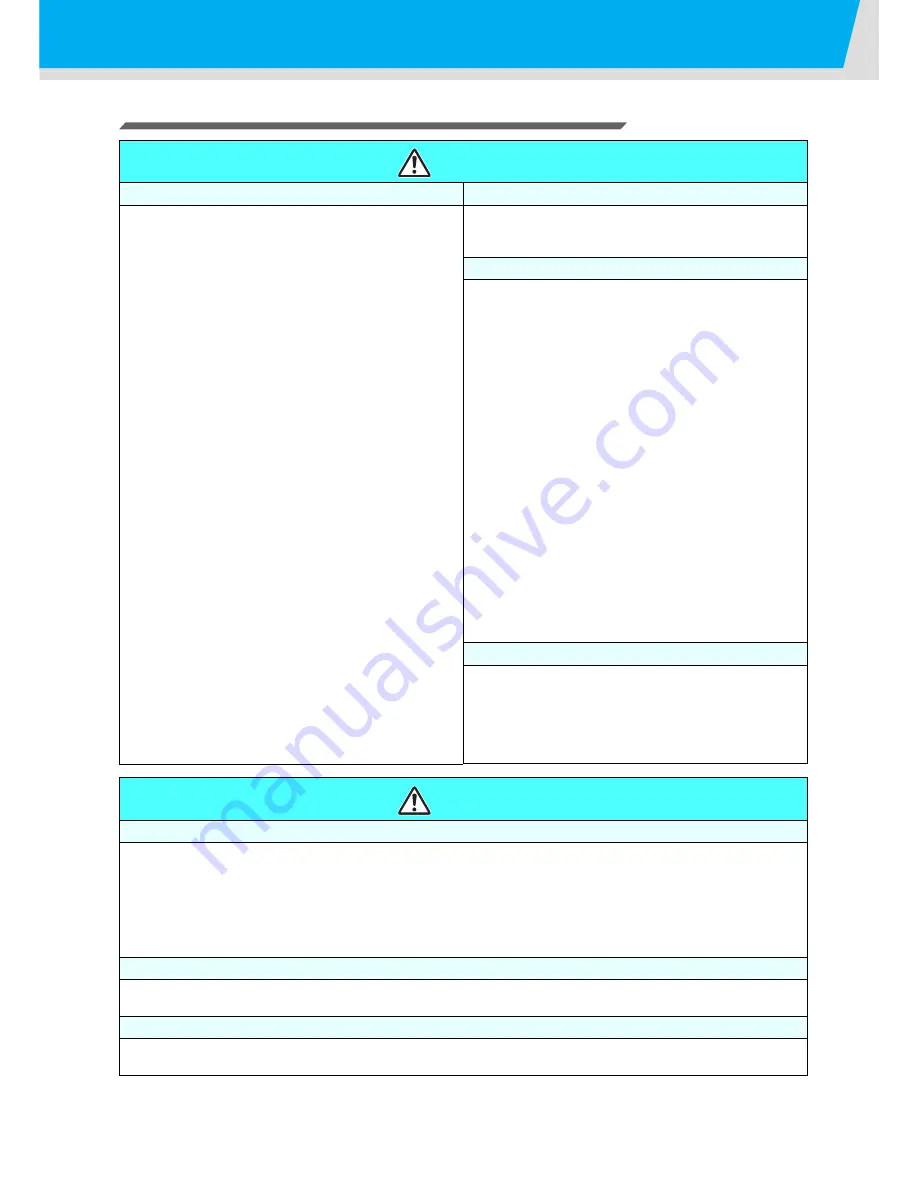
Safety Precautions
9
CAUTIONS and NOTES
Warning
Handling of ink bottles
Front cover and lever
• Use the UJV500 genuine ink. Remember that the user
shall be filled for a repair to correct any damage resulting
from the use of ink other than the exclusive type.
• The machine does not operate with any ink other than the
UJV500 genuine ink.
• Do not use the UJV500 genuine ink with other printers, as
doing so may cause damage to such machines.
• Never refill the ink bottle with ink. Refilled ink bottle can
cause a trouble. Remember that MIMAKI assumes no
responsibility for any damage caused by the use of the ink
bottle replenished with ink.
• If the ink bottle is moved from a cold place to a warm
place, leave it in the room temperature for three hours or
more before using it.
• Open the ink bottle just before installing it in the machine.
If it is opened and left for an extended period of time,
normal printing performance of the machine may not be
ensured.
• Make sure to store ink bottles in a cool and dark place.
• Store ink bottles and waste ink tank in a place that is out
of the reach of children.
• Be sure to thoroughly consume the ink in the ink bottle,
once it is opened, within three months. If an extended
period of time has passed away after opening the ink
bottle, printing quality would be poor.
• Neither pound the ink bottle nor shake it violently, as
doing so can cause leakage of ink.
• Do not touch or stain the contacts of the IC chip, as doing
so may cause damage to the print circuit board.
• Waste ink is equivalent to waste oil of industrial waste.
Request an industrial waste disposal company for
disposal of waste ink.
• Never open the front cover or raise the lever during
printing. Opening the cover or raising the lever will abort
printing.
Handling of media
• Use media recommended by MIMAKI to ensure reliable,
high-quality printing.
• Set the temperature of the Print heater and Post-heater
according to the type and characteristics of the media
used. Automatic temperature setting can be made on the
operation panel by setting the profile on the dedicated
RIP. For setting on the RIP, refer to the instruction manual
for your RIP.
• Pay attention to the expansion and contraction of the
media.
Do not use media immediately after unpacking. The
media can be affected by the room temperature and
humidity, and thus it may expand and contract.The media
have to be left in the atmosphere in which they are to be
used for 30 minutes or more after unpacked.
• Do not use curled media.
The use of curled media can not only cause a media jam
but also affect print quality.
Straighten the sheet of media, if significantly curled,
before using it for printing. If a regular-sized coated sheet
of media is rolled and stored, the coated side has to face
outside.
• Do not leave the media with the heater ON for a long time.
Protection of media from dust
• Store media in a bag. Wiping off dust accumulated on
media will adversely affect the media due to static
electricity.
• When leaving the workshop after the working hours, do
not leave any media on the roll hanger. If any media is left
on the roll hanger, it can get dusty.
Warning
Notes on maintenance
• It is strongly recommended to use the machine in a room that is not dusty.
• Keep the front cover closed even when the machine is not printing. If not, dust can accumulate on the nozzles in the
heads.
• Dust in the heads can also cause drops of ink to fall suddenly down on the media during printing. In such a case, be
sure to clean up the heads.
• When cleaning the ink-station or the heads, make sure to wear the attached gloves.
• Perform wiping (removal of dust and paper powder) of the capping station and wiper frequently.
Periodic replacement parts
• Some parts of this machine must be replaced with a new one periodically by service personnel. Be sure to make a
contract with your distributor or dealer for After sale service to ensure a long life of your machine.
Disposition of this machine
• When discarding this machine, request the treatment of it for an industrial waste disposal contractor.
• Treat it properly in compliance with regulation in the local area.



